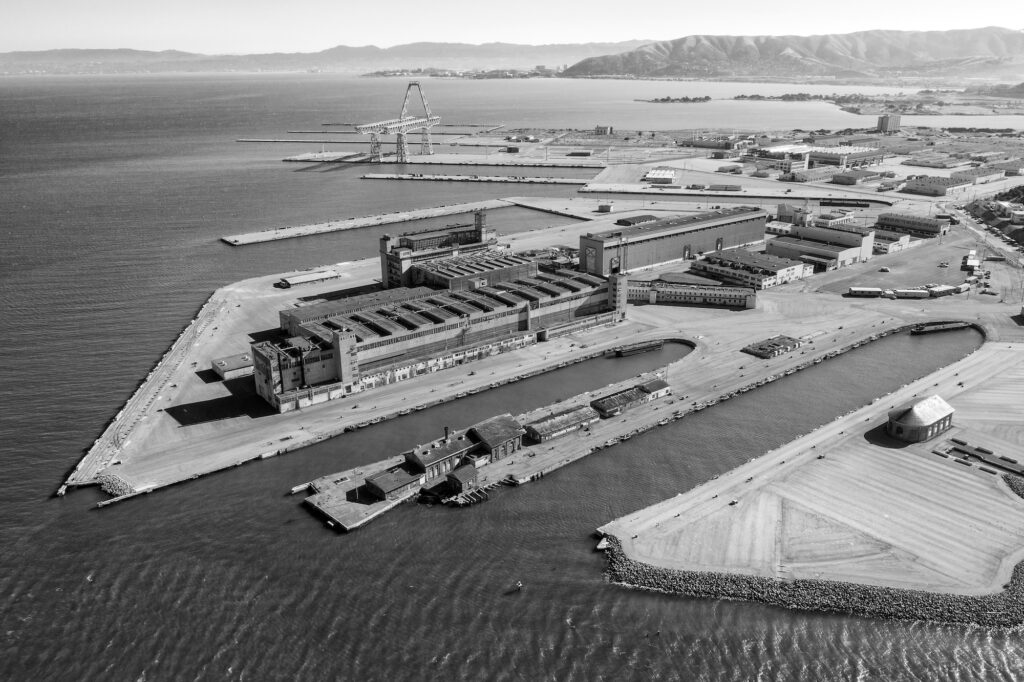The San Francisco Civil Grand Jury pointed out in 2022 a major time-bomb of an issue at the Hunters Point Shipyard, which developers still want to turn into housing:
Tons of toxics, including some radioactive material, are buried in the soil—and as the sea level rises, that material could and probably will rise to the surface, even if the developers put concrete on top of it.
The US Navy now agrees it’s a problem.

Mayor London Breed, however, has completely dismissed the data, saying that she won’t implement the grand jury’s recommendations and that the Navy’s cleanup plans are “extensive and thorough:”
“While we agree that the cleanup process is complex and often technical and that climate change will continue to affect San Francisco in many ways, overall we disagree partially or wholly with many of the (grand jury’s) findings and recommendations in the report,” Breed said.
But Sup. Shamann Walton is siding with the grand jury. He’s introduced legislation that would allocate $500,000 to pay for an independent study through the Public Utilities Commission of the groundwater toxics issue. From the Budget and Legislative Analyst’s report:
The June 2022 Civil Grand Jury Report, “Buried Problems and a Buried Process: The Hunters Point Shipyard in the Time of Climate Change,” concluded that the City was not adequately monitoring the impact of sea level rise on the environmental contamination in the Hunters Point area. The report recommended that the Mayor and/or City Administrator commission a report on potential interactions of groundwater with hazardous materials and planned modifications to the site under multiple sea level rise scenarios and that the Mayor and Board provide funding for the study.
That measure comes before the Budget and Appropriations Committee Wednesday/27.
The challenge: Breed has in the past refused to spend money that the supes have appropriated if she doesn’t like the idea. The hearing starts at 4pm.
Sup. Aaron Peskin introduced, and the board passed 8-3, an ordinance limiting height and density in the Jackson Square Historic District, one of the oldest parts of the city with dozens of buildings that date back to the Gold Rush era, and the Northeast Waterfront Historic District.
Developers, including the chair and main funder of the SF Standard and mega-donor to local campaigns Michael Moritz, are looking at the neighborhood for new highrise luxury housing.
Peskin’s legislation is fairly limited: It only sets aside a small piece of what’s known as the C-2 downtown district as a place where existing height and bulk limits have to be preserved.
And yet, this modest bill has been attacked as “anti-housing,” and Breed, without any notice to Peskin, vetoed it.
In her statement, she said:
Restricting new housing runs counter to the goals of our Housing Element, which the Board of Supervisors unanimously approved just over a year ago. It also runs counter to what we need to do to make this City a place that creates opportunities for new homes for the people who need them today and for future generations growing up in San Francisco.
The Board of Supes will consider Tuesday/26 an override of that veto.
There are all sorts of issues of historic preservation and housing here (although the mayor and the Yimbys say this would prevent affordable housing, there is not a single proposal for anything except very expensive luxury units in the area).
But Peskin told me there’s another issue at hand.
When the mayor or a board member proposes land-use changes, the City Charter specifies that the Planning Commission has 90 days to consider the issue and make a recommendation. The supes can ignore or accept that recommendation, but first they have to hear from the planners.
In this case, the process went forward, Peskin wanted more sweeping controls, but the mayor’s Planning Department staff suggested limiting the bill to a few small areas. The Planning Commission, with four of the seven members appointed by the mayor, unanimously agreed.
So the Peskin bill has the full support of Breed’s planning director and her commission.
“The mayor’s planning director said do it,” Peskin told me. “This shows how Breed doesn’t believe in the rational function of government.”
He added: “This has nothing to do with the Housing Element.”
Since eight supes voted for the bill, the board will override the mayor’s veto unless one of those folks, under what I’m sure is immense pressure, changes their vote. That meeting starts at 2pm.
The Land Use and Transportation Committee will hold a hearing Monday/25 on the massive, multi-year, multi-billion project by the Army Corps of Engineers to rebuild the waterfront to address sea-level rise.
The current price tag for one of the most ambitious public-works projects in San Francisco history is about $13 billion. That’s almost certainly a low estimate; this could take many more billions, and decades, to complete.
The Corps is not known for its concern with public input, and has run roughshod over communities many times in the past. So this will be the start of a very long process. That meeting begins at 1:30pm.





